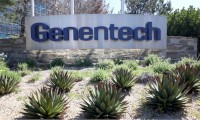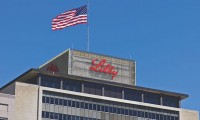-
Regeneron fends off Viatris’ Eylea biosimilar with patent win
- Source: drugdu
- 165
- January 3, 2024
-
Bayer wins latest Roundup cancer trial, ending losing streak
- Source: drugdu
- 138
- December 28, 2023
-
M&A saw an uptick in 2023. Analysts expect the trend to continue
- Source: drugdu
- 229
- December 26, 2023
-
FDA Grants Priority Review to Genentech’s sBLA for Xolair to Treat Food Allergies
- Source: drugdu
- 103
- December 22, 2023
-
Genentech elevates interim CEO Ashley Magargee to full-time leadership position
- Source: drugdu
- 89
- December 14, 2023
-
On Heels of ASH Data, Pfizer Eyes FDA Submission for New Hemophilia Drug
- Source: drugdu
- 94
- December 12, 2023
-
EyePoint Pharma Stock Surges on Phase II Wet AMD-Therapy Results
- Source: drugdu
- 115
- December 6, 2023
-
Lilly’s Jaypirca blazes leukemia trail with FDA nod, fast confirmatory trial filing
- Source: drugdu
- 98
- December 6, 2023
-
Eli Lilly and PRISM BioLab enter drug discovery collaboration worth over $660m
- Source: drugdu
- 104
- December 5, 2023
-
AbbVie diversifies oncology portfolio with $10.1 bn ImmunoGen acquisition
- Source: drugdu
- 100
- December 2, 2023
your submission has already been received.
OK
Subscribe
Please enter a valid Email address!
Submit
The most relevant industry news & insight will be sent to you every two weeks.













